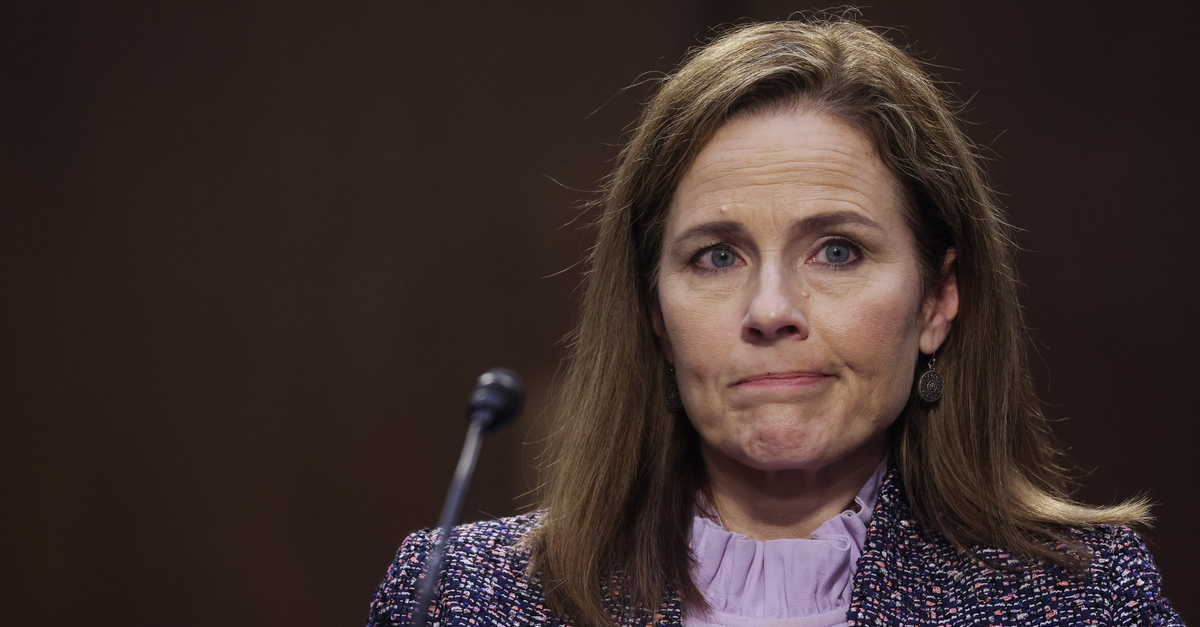
Nearly three dozen legal scholars appear to have endorsed the aphorism that the perfect is the enemy of the good. Although they view a bill attempting to impose term limits on U.S. Supreme Court justices as imperfect, they nonetheless see the legislation as an important step to depoliticizing the highest court in the land and lowering the stakes of nominations.
This endorsement comes on a day when the full Senate will kick off debate on Amy Coney Barrett’s shoo-in Supreme Court nomination, less than two weeks away from the election. It also comes a day after Democratic presidential nominee Joe Biden proposed establishing a “bipartisan commission of scholars, constitutional scholars, Democrats, Republicans, liberal, conservative” to investigate court reform.
“And I will ask them to, over 180 days, come back to me with recommendations as to how to reform the court system because it’s getting out of whack,” Biden said.
The suggestion sparked criticism from progressives who said Biden should take a stronger stance on the so-called “court packing” issue, given the highly controversial circumstances of the Neil Gorsuch and Barrett nominations, in particular. The suggestion also outraged Republicans who said Biden should be clear about his intentions on this matter.
One non-court packing reform idea, already proposed by House Democrats, is to impose term limits on justices. The bill would place an 18-year limit on a justice’s tenure, taking lifetime appointment status off the table. Such a limit, it should be noted, would have made late the Justice Ruth Bader Ginsburg’s 27-year career on the court impossible. But those pushing the bill see it as a long-term win on balance for SCOTUS.
The bill, introduced by Rep. Ro Khanna (D-Calif.), attempts to put an end to political showdowns over Supreme Court nominations in election years: “The President shall, during the first and third years after a year in which there is a Presidential election, nominate, and by and with the advice and consent of the Senate, appoint one Justice of the Supreme Court.”
The bill also attempts to automatically retire a justice after 18 years, granting them senior status (as is done in lower federal courts). A senior justice who “who has served in such capacity for the least amount of time,” for example, would step in if “there is more than one vacancy on the Supreme Court […] and [be] assigned to serve as a Justice by the Chief Justice until each vacancy on the Supreme Court is filled.”
Importantly, anyone on the Supreme Court prior to the bill becoming law would be grandfathered in. In other words, “No Justice appointed before the date of enactment of this Act shall be required to retire under subsection.”
The 30 legal scholars, including law professors from around the country and a former chief justice of the Utah Supreme Court, said the above-described reform is a step in the right direction.
“We, the undersigned, endorse H.R. 8424, the Supreme Court Term Limits and Regular Appointments Act. We are pleased that a formal legislative proposal to limit future justices to 18 years of high court service has been introduced and is advancing public discourse on court reform,” the letter said. “Though the bill is not perfect, we believe it to be a critical piece in prescribing how our country’s leaders can work to depoliticize the Supreme Court and its confirmation process.”
These scholars, judicial reform group Fix the Court said in a statement to Law&Crime, have been calling for Supreme Court term limits for decades.
“As the action on Supreme Court term limits moves from the halls of academia to the halls of Congress and possibly the White House, it’s critical to maintain the support of constitutional scholars, who have for decades been among the most outspoken supporters of ending high court life tenure. I’m thankful for these scholars’ encouragement and am confident they’ll continue to play a role as proposals to rein in the most powerful, least accountable part of our government advance,” Fix the Court Executive Director Gabe Roth said.
[Image via Jonathan Ernst-Pool/Getty Images]